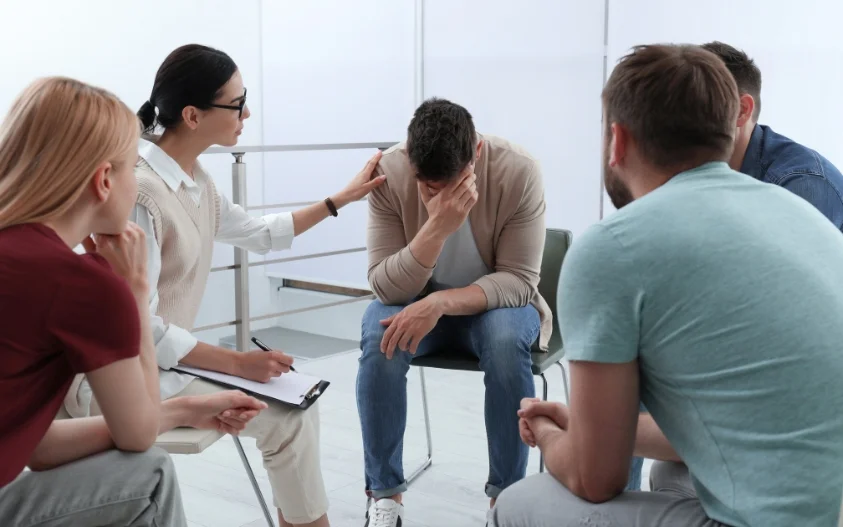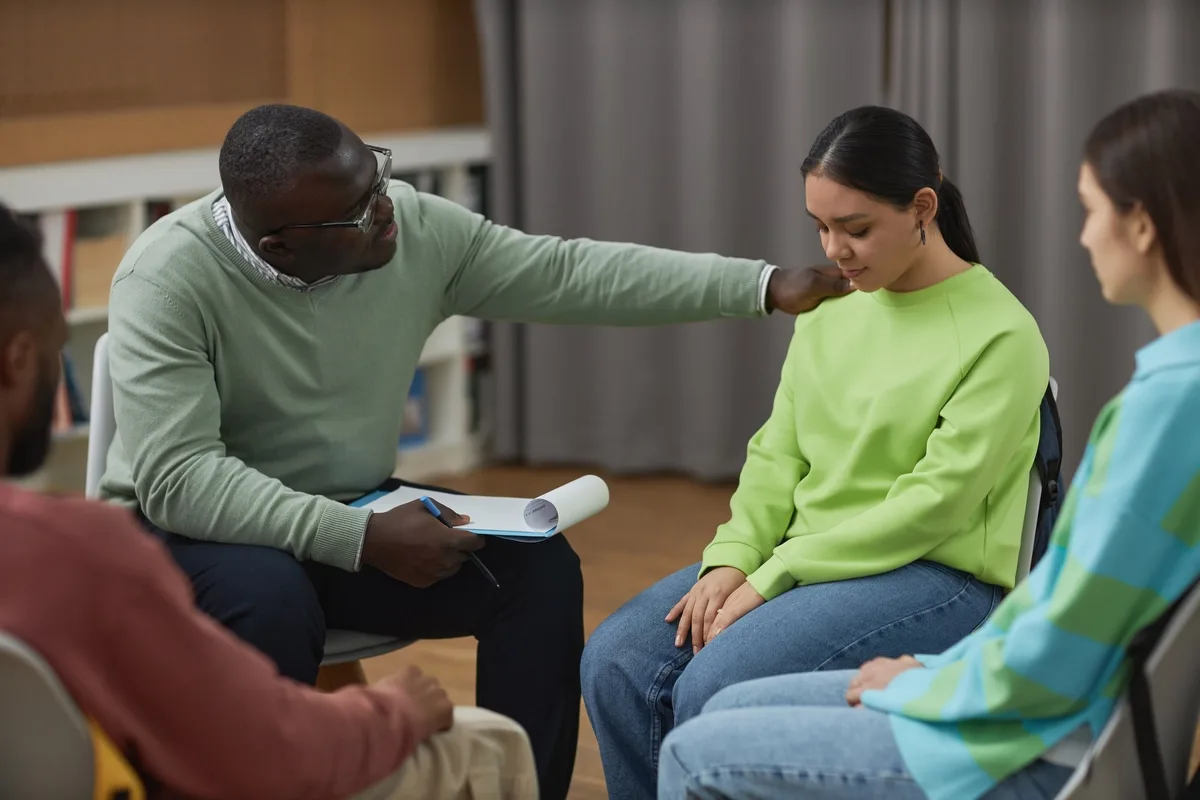24/7 Helpline:
(866) 899-221924/7 Helpline:
(866) 899-2219
Learn more about PTSD Treatment centers in Henderson County
PTSD Treatment in Other Counties

Other Insurance Options

Magellan Health

Health Choice

EmblemHealth

Regence

Optum

BlueCross

WellCare Health Plans

American Behavioral

United Health Care

State Farm

Sutter

MVP Healthcare

PHCS Network

Multiplan

MHNNet Behavioral Health

Oxford

AllWell

Ambetter

Health Partners

Kaiser Permanente

Western Psychological and Counseling Services – Building C
Western Psychological and Counseling Services - Building C is an outpatient facility that offers men...

Western Psychological and Counseling Services – Building B
Western Psychological and Counseling Services - Building B offers outpatient treatment for clients w...

Western Psychological and Counseling Services – Building A
Western Psychological and Counseling Services - Building A is an outpatient facility that offers tre...

Focus Psychological Associates
Focus Psychological Associates offers outpatient treatment for individuals with alcohol and/or subst...

Family and Community Services
Family and Community Services is a private rehab located in Media, Pennsylvania. Family and Communit...

Providence Treatment
Providence Treatment offers outpatient and inpatient treatment for individuals with alcohol and/or s...





























































Northwest Behavioral Health
Northwest Behavioral Health is a private rehab located in Gladstone, Oregon. Northwest Behavioral He...

County Seat Behavioral Health
County Seat Behavioral Health is a private rehab located in Media, PA. County Seat Behavioral Health...

Rehab After Work
Rehab After Work is a licensed intensive outpatient drug and alcohol treatment program which has bee...

Chimes – Holcomb Behavioral Health Systems
Chimes - Holcomb Behavioral Health Systems provides services for children and adults who may be deal...



































































